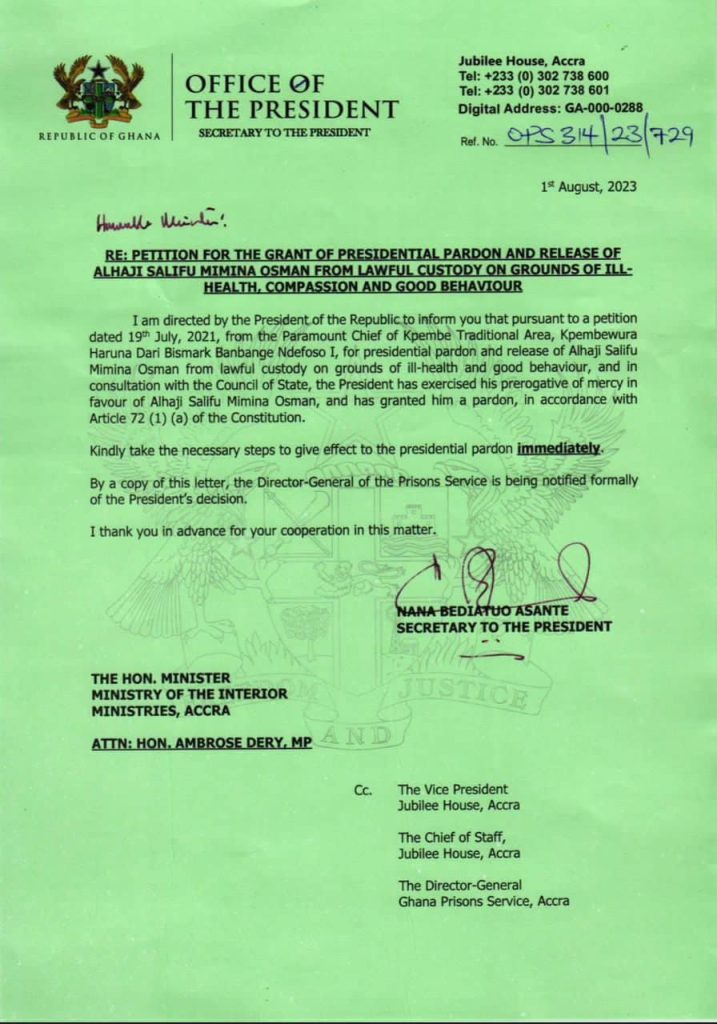President Nana Akufo-Addo has granted a presidential pardon to Alhaji Salifu Mimina Osman, the former Deputy National Security Coordinator who was serving a five-year jail term since 2020. The decision to grant the pardon was taken in consultation with the Council of State and was swiftly directed to the Interior Minister to ensure immediate implementation.
The presidential pardon comes following a petition from the Paramount Chief of Kpembi Traditional Area, Kpembewura Haruna Dari Bismark Banbange Ndefoso I. The petition sought the pardon and release of Alhaji Salifu Mimina Osman based on the grounds of ill-health and good behavior.
The President’s decision to grant the pardon is in accordance with Article 72(1)(a) of the Constitution, which empowers the President to exercise the prerogative of mercy. The pardon marks the commutation of Alhaji Salifu Mimina Osman’s sentence, leading to his release from custody.
Alhaji Salifu Mimina Osman was previously sentenced to a five-year jail term in 2020 for his involvement in willfully causing financial loss to the state, as part of the National Communications Authority (NCA) scandal. The scandal had raised concerns over financial mismanagement and corruption within the government.
However, with the pardon granted, Alhaji Salifu Mimina Osman’s conviction has been effectively nullified, and he will now be able to resume his life outside of incarceration.
It is important to note that the President’s decision was made after careful consideration and in consultation with the Council of State. The involvement of the Paramount Chief of Kpembi Traditional Area in petitioning for the pardon adds a layer of community input to the process.
Critics of the decision may raise concerns about the potential message it sends about accountability for financial misconduct in public office. It remains essential for the government to maintain transparency and integrity in addressing such matters to uphold public trust.
The health and behavior-based grounds cited in the petition are often taken into consideration in similar cases across various jurisdictions. However, it is crucial to ensure that the pardon process remains fair and impartial, without any appearance of favoritism or undue influence.








